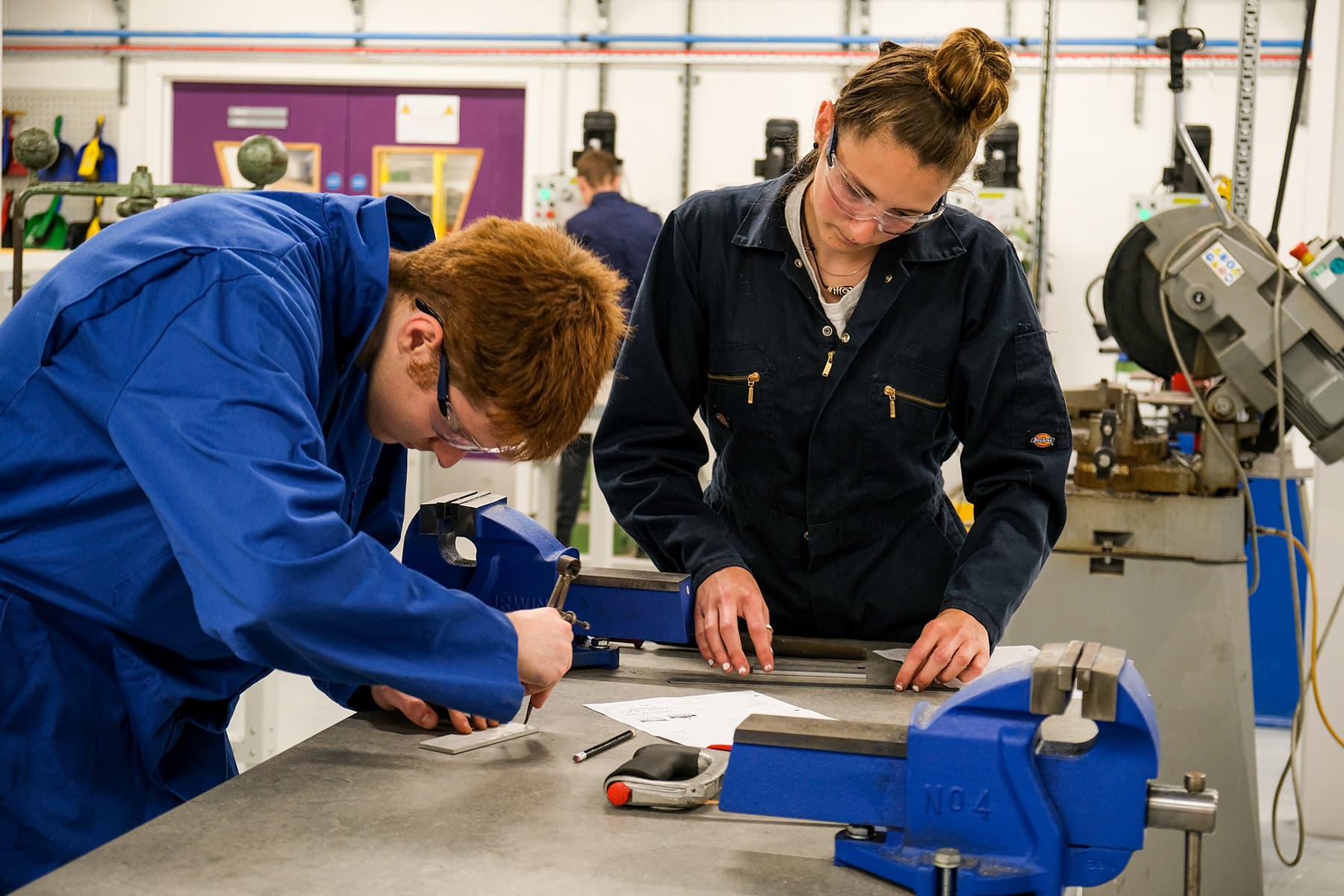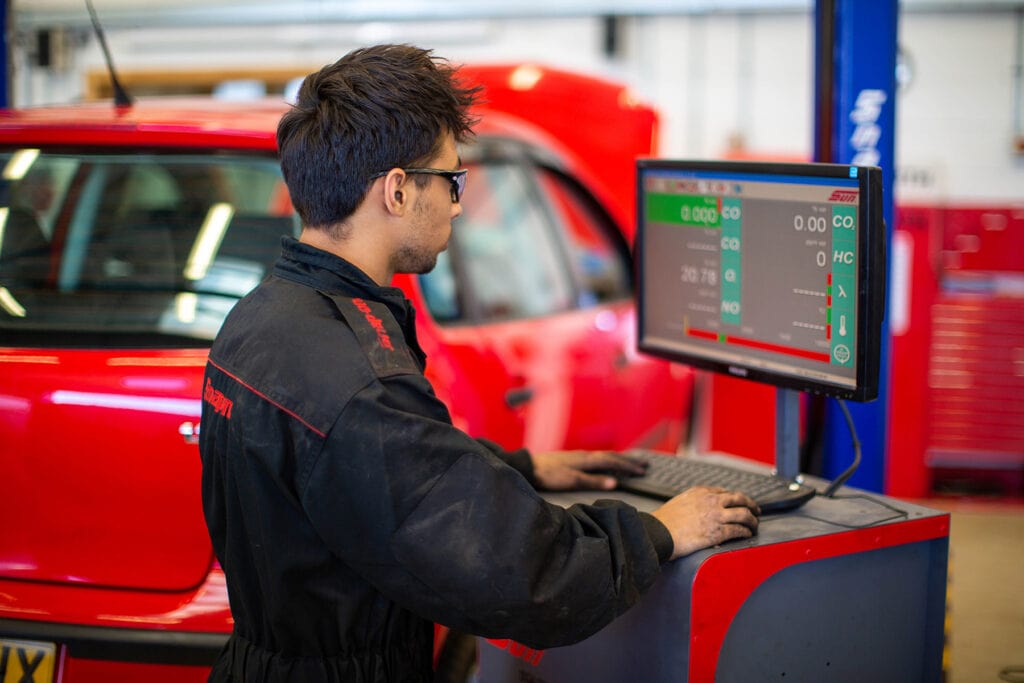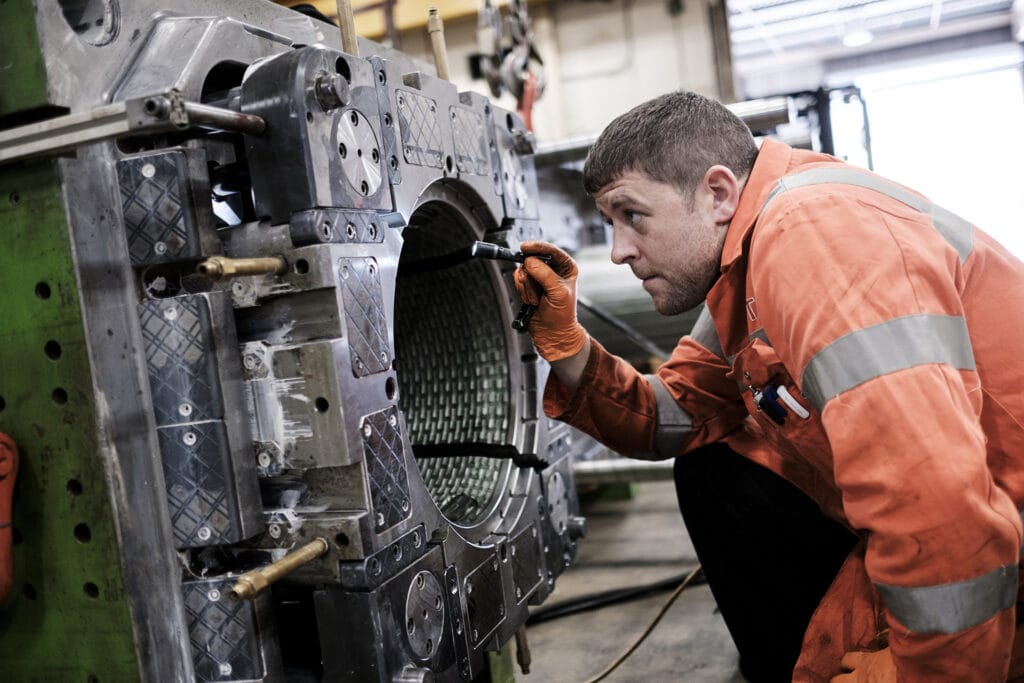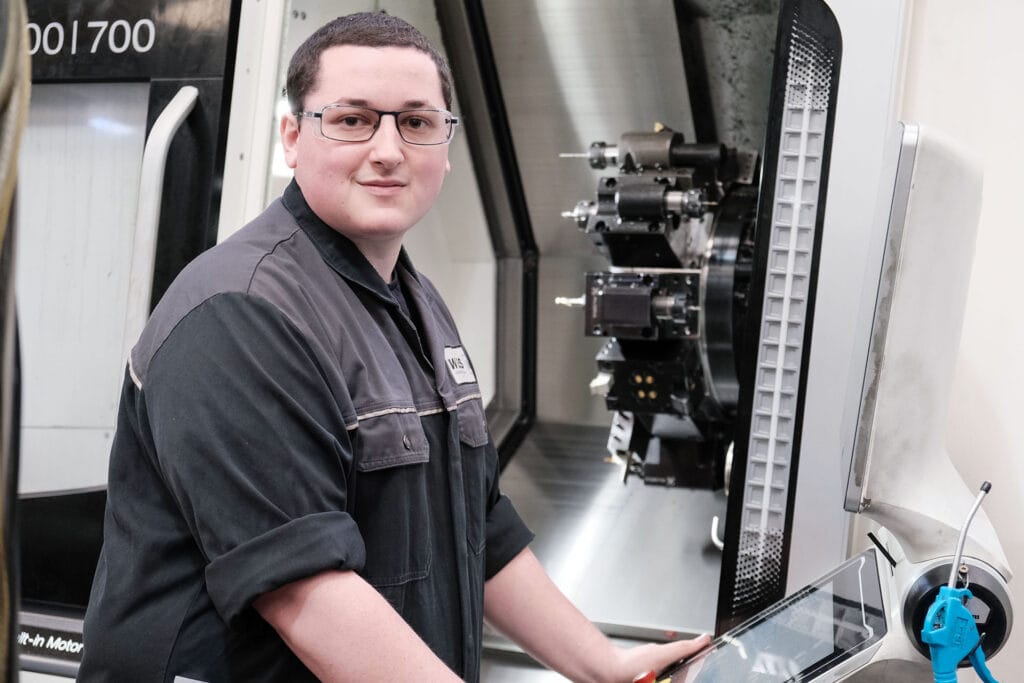WHY CHOOSE THIS COURSE?
Apprentices will start their career as a Metal Fabricator learning to be fully competent in various manual welding processes in all welding positions. The course is suitable for learners who want to advance their welding and fabricating skills. Metal Fabricators use a variety of techniques to cut, form and shape a variety of metal fabricated components and join them by using welding processes, so manual dexterity is essential. There is a high demand for Metal Fabricators and Multi-Positional Welders in sectors such as: power generation, oil, and gas, marine, transport, nuclear, processing, aerospace, pharmaceuticals, construction and many more.
Apply for this course
Start date: 03/11/2025
TOP COURSE HIGHLIGHTS
'Work ready' qualification
Start a quality career
Learn practical skills
Work with a range of welding processes
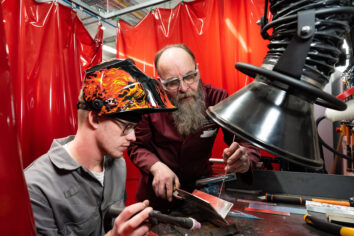
Learn from industry experts
Apprentices will be taught by staff with extensive experience who will advance their knowledge and skills to meet the expectations of the Engineering industry.
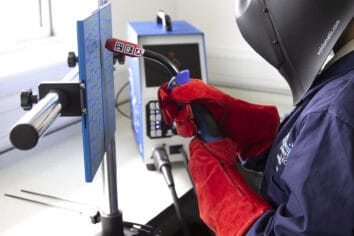
State-of-the-art facilities
Enjoy modern workshops that are second to none within a further education setting, with a wide range of different metal working tools, augmented reality welding and professional quality welding equipment.
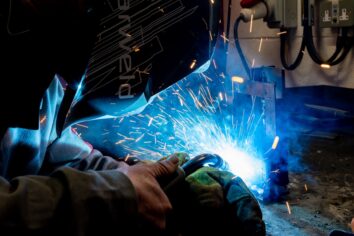
Skills employers need
Apprentices learn skills that are required in industry, enhancing not only their knowledge and practical ability but also their future employability.
WHAT WILL I LEARN?
Apprentices will make items such as pressure containment equipment, pressure pipework, offshore jackets, submarine and military vehicle components and equipment and aero-engine components. Work includes manufacturing bridges, oil rigs, ships, petro-chemical installations, cranes, platforms, aircraft, automotive and machinery parts, sheet metal enclosures, equipment supports and anything that can be fabricated out of metal.
The programme is broken down into modules of delivery which are covered in the workplace with the Apprentice’s employer and during their time at college with their tutor. The curriculum is divided into a few categories, an example of what will be covered is detailed below:
Knowledge:
- The importance of complying with statutory, quality, organisational and health and safety regulations.
- General engineering mathematical and scientific principles, methods, techniques, graphical expressions, symbols formulae and calculations.
- The structure, properties and characteristics of common materials.
- The typical problems that may arise within the workplace.
- Approved diagnostic methods and techniques used to help solve engineering problems.
- The importance of only using current approved processes, procedures, documentation and the potential implications if they are not adhered to.
- The different roles and functions in the organisation and how they interact.
- Why it is important to continually review fabrication and general engineering processes and procedures.
- The correct methods of moving and handling materials.
- Processes for preparing materials to be marked out.
- The tools and techniques available for cutting, shaping, assembling and finishing materials.
- Allowances for cutting, notching, bending, rolling and forming materials.
- Describe pattern development processes, tooling and equipment.
- Describe cutting and forming techniques, tooling and equipment.
- Describe assembly and finishing processes, tooling and equipment.
- Inspection techniques that can be applied to check shape and dimensional accuracy.
- Factors influencing selection of forming process.
- Principles, procedures and testing of different joining techniques (mechanised or manual).
- Equipment associated with manual or mechanised joining techniques including maintaining equipment in a reliable and safe condition.
- Consumables used in manual or mechanised joining.
- Effects of heating and cooling metals.
- Consumables used in manual or mechanised joining.
- Different types of welds and joints.
- Effects of heating and cooling metals.
Skills:
- Always work safely, comply with health & safety legislation, regulations and organisational requirements.
- Comply with environmental legislation, regulations and organisational requirements.
- Obtain, check and use the appropriate documentation, such as job instructions, drawings and quality control documentation.
- Carry out relevant planning and preparation activities before commencing work activity.
- Undertake the work activity using the correct processes, procedures and equipment.
- Carry out the required checks, such as quality, compliance or testing, using the correct procedures, processes and/or equipment.
- Deal promptly and effectively with problems within the limits of the Apprentice’s responsibility using approved diagnostic methods and techniques and report those which cannot be resolved to the appropriate personnel.
- Complete any required documentation using the defined recording systems at the appropriate stages of the work activity.
- Restore the work area on completion of the activity and where applicable return any resources and consumables to the appropriate location.
- Identify and follow correct metal work instructions, specifications and drawing etc.
- Mark out using appropriate tools and techniques.
- Cut and form metal for the production of fabricated products.
- Produce and assemble metal products to the required specification and quality requirements.
- Identify and follow correct joining instructions, specifications and drawings.
- Carry out the relevant preparation before starting the joining fabrication activity.
- Set-up, check, adjust and use joining and related equipment.
- Weld joints in accordance with approved welding procedures and quality requirements.
Behaviour:
- Personal responsibility and resilience: Comply with health and safety guidance and procedures, be disciplined and have a responsible approach to risk, work diligently regardless of levels of supervision, accept responsibility for managing time and workload and stay motivated and committed when facing challenges.
- Work effectively in teams: Integrate with the team, support other people, consider implications of actions on other people and the business whilst working effectively to get the task completed.
- Effective communication and interpersonal skills: An open and honest communicator, communicates clearly using appropriate methods, listens well to others and has a positive and respectful attitude.
- Focus on quality and problem solving: Follow instructions and guidance, demonstrate attention to detail, follow a logical approach to problem solving and seek opportunities to improve quality, speed and efficiency.
- Continuous personal development: Reflect on skills, knowledge and behaviours and seek opportunities to develop, adapt to different situations, environments or technologies and have a positive attitude to feedback and advice.
WHERE WILL IT TAKE ME?
Achievement of this qualification demonstrates that an Apprentice has the necessary technical skills and knowledge employers are looking for when recruiting a Metal Fabricator or Welder. This may be working in a production environment or working on bespoke fabrications. The qualification will allow successful learners to progress to employment.
After successfully completing the Apprenticeship learners will be able to work with a range of welding processes, with different metals, to the levels of quality and inspection required in safety critical applications. Skilled, qualified, professionally certified Metal Fabricators and Welders can work anywhere in the world and provide services in the harshest of environments. For these accomplished professionals, the monetary rewards can be significant.
ASSESSMENT ARRANGEMENTS
End Point Assessment will consist of a knowledge test and practical assessment.
ENTRY REQUIREMENTS
For entry to this programme, learners will require a grade 3 GCSE (D) or above in English and Maths. They must have a keen interest in Engineering and a good work ethic. Apprentices must be able to work alone, as part of a team and be able to demonstrate commitment to the course.
INFORMATION & SUPPORT
The employer will determine whether the Apprentice is ready for End Point Assessment in consultation with the learning provider.
On conclusion that the assessment gateway requirements have been achieved, learners will proceed to the End Point Assessment stage of the Apprenticeship. It is expected that this will happen within three months of the Apprenticeship completion date.
ADDITIONAL INFORMATION
The College will provide all of the tools and materials for the course. Apprentices will be responsible for their own PPE and will be required to come equipped with a pair of steel toe capped boots and a pair of safety glasses.
Meet the staff, tour the campus and find out about life as a student at one of the best colleges in the country.
